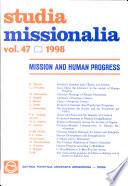
Cerca negli ebook:

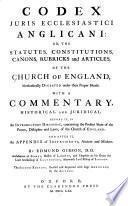
Codex juris ecclesiastici anglicani
Autore: Church of England
Numero di pagine: 1574
La mia Napoli
Autore: Danilo Iervolino
Numero di pagine: 144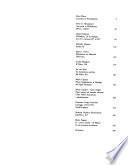
Cronache ercolanesi
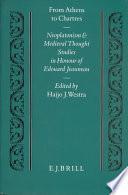
From Athens to Chartres
Autore: Édouard Jeauneau , Haijo Jan Westra
Numero di pagine: 521The intellectual history of the Middle Ages involves many earlier traditions and developments from them, but just as many completely new lines of thought. The influence of Classical Antiquity is always present: in the continuation and adaptation of late antique forms of education and intellectual training, but also in the works of the Latin Church Fathers and of the major ancient philosophers whose works were passed down and built upon in the Middle Ages. From the 12th century onwards Arabic-Islamic learning, which bore the clear stamp of Greek philosophy and science, became known in Latin-speaking Europe and was a catalyst for many new developments. In keeping with the educational system of the period, theology and philosophy, the latter being seen as a universal science, were the main vehicles of intellectual life. In logic, ethics and natural philosophy as well as in scientific theology, medieval scholars attained standards, which in some cases have not even been equalled today. 'Studien und Texte zur Geistesgeschichte des Mittelalters' aims to address itself to this cultural plurality with a correspondingly broad publication programme. It is open to specialist research into...
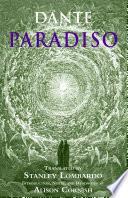
Paradiso
Autore: Stanley Lombardo
Numero di pagine: 600Like his groundbreaking Inferno (Hackett, 2009) and Purgatorio (Hackett, 2016), Stanley Lombardo's Paradiso features a close yet dynamic verse translation, innovative verse paragraphing for reader-friendliness, and a facing-page Italian text. It also offers an extraordinarily helpful set of notes and headnotes as well as Introduction—all designed for first-time readers of the canticle—by Alison Cornish.
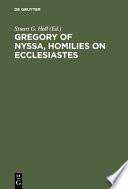
Gregory of Nyssa
Autore: Stuart George Hall
Numero di pagine: 440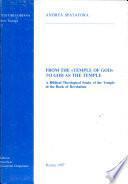
From the temple of God to God as the temple
Autore: Andrea Spatafora
Numero di pagine: 338The term naos is found thirteen times in the Apocalypse, indicating the significant place it occupies within the book. To date, no complete study of the theme of the temple in this Book exists. Taking into consideration the scholarly contributions that have been made by those studying the book or the theme of the temple in the New Testament, the present work proposes an analysis of the verses containing the term naos in view of establishing John the Seer's use of temple imagery to speak of the Church. The study concludes by presenting the temple theology of the Book of Revelation including a comparison with the texts of the Old Testament, Jewish intertestamental literature and the New Testament with particular regard to the Fourth Gospel. Andrea Spatafora, 1958 , made profession in the Congregation of the Missionaries of the Holy Family and was ordained a priest in 1983. Completing a licentiate in Sacred Scripture at the Pontifical Biblical Institute in 1992, he obtained a doctorate in Biblical Theology at the Pontifical Gregorian University in 1997.
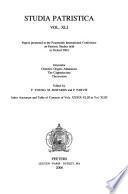
Orientalia
Autore: Frances Margaret Young , Mark J. Edwards , Paul M. Parvis
Numero di pagine: 475Papers presented at the Fourteenth International Conference on Patristic Studies held in Oxford 2003 (see also Studia Patristica 39, 40, 42 and 43). The successive sets of Studia Patristica contain papers delivered at the International Conferences on Patristic Studies, which meet for a week once every four years in Oxford; they are held under the aegis of the Theology Faculty of the University. Members of these conferences come from all over the world and most offer papers. These range over the whole field, both East and West, from the second century to a section on the Nachleben of the Fathers. The majority are short papers dealing with some small and manageable point; they raise and sometimes resolve questions about the authenticity of documents, dates of events, and such like, and some unveil new texts. The smaller number of longer papers put such matters into context and indicate wider trends. The whole reflects the state of Patristic scholarship and demonstrates the vigour and popularity of the subject.
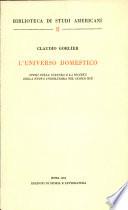
L'universo domestico
Autore: Claudio Gorlier
Numero di pagine: 291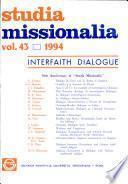
Dialogue Interreligieux
Autore: Mariasusai Dhavamony
Numero di pagine: 362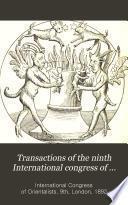
Transactions of the Ninth International Congress of Orientalists ( Held in London, 5th to 12th September 1892.)
Autore: Edward Delmar Morgan
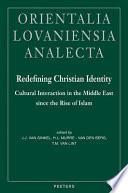
Redefining Christian Identity
Autore: Jan Jacob van Ginkel , Jan J. Ginkel , Hl Murre-Van Den Berg , Hendrika Lena Murre-van den Berg , H. L. Murre-Van den Berg , Theo Maarten van Lint , Jj Van Ginkel , Tm Van Lint
Numero di pagine: 420Cultural interaction in the Middle East since the Rise of Islam - such was the title of a combined research project of the Universities of Leiden and Groningen aimed at describing the various ways in which the Christian communities of the Middle East expressed their distinct cultural identity in Muslim societies. As part of the project the symposium "Redefining Christian Identity, Christian cultural strategies since the rise of Islam" took place at Groningen University on April 7-10, 1999. This book contains the proceedings of this conference. From the articles it becomes clear that a number of distinct "cultural strategies" can be identified, some of which were used very frequently, others only in certain groups or at particular periods of time. The three main strategies that are represented in the papers of this volume are: (i) reinterpretation of the pre-Islamic Christian heritage; (ii) inculturation of elements from the new Islamic context; (iii) isolation from the Islamic context. Viewed in time, it is clear that the reinterpretation of older Christian heritage was particularly important in the first two centuries after the rise of Islam, the seventh and eighth centuries,...
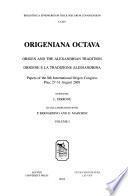
Origene E la Tradizione Alessandrina
Autore: Lorenzo Perrone , P. Bernardino , D. Marchini
Numero di pagine: 1406Studies on Origen at the beginning of the 21st century continue to dig old and new grounds of research. After the epoch-making rediscovery of the great Alexandrian doctor throughout the past century, contemporary research increasingly deals with the close context of his writings and thought: the cultural tradition of Alexandria in all its components - Hellenistic, Jewish, Egyptian, Gnostic and Christian. This topic was the theme chosen for the Colloquium Origenianum Octavum (Pisa, 27-31 August 2001), a major event of patristic scholarship. The proceedings now contain more than 100 papers of contributors from about 30 countries. They not only provide the best overview on a lively field of studies but also demonstrate how Origen's heritage in Christian history and theology carried with it the imprint of one of the most vital traditions of Western civilization (Peeters 2002)

Liber annuus
Autore: Studium Biblicum Franciscanum
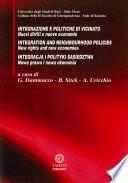
Integrazione e politiche di vicinato
Autore: Dammacco Gaetano , Sitek Bronislaw , Uricchio Antonio
Numero di pagine: 830L’Europa attraversa attualmente una delle fasi più difficili della sua storia. I problemi sono numerosi: perplessità sul processo di allargamento (il più grande allargamento che l’Europa abbia mai conosciuto), la crisi economica, derivata da quella finanziaria, la crisi finanziaria dello Stato (fatto nuovo che mette a dura prova la tenuta complessiva del sistema), crisi occupazionale, inquinamento ambientale, clima di diffusa violenza, strumentalizzazione delle religioni, il degrado delle periferie. Senza dimenticare i conflitti che interessano il Mediterraneo, specie quello relativo al Medioriente.
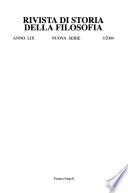
Rivista di storia della filosofia
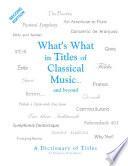
Répertitres
Autore: François Verschaeve
Numero di pagine: 540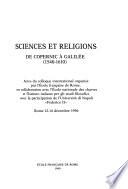
Sciences et religions de Copernic à Galilée, 1540-1610
Autore: École française de Rome
Numero di pagine: 550Olasz és angol nyelvű összefoglalókkal
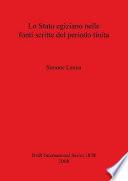
Lo stato egiziano nelle fonti scritte del periodo tinita
Autore: Simone Lanna
Numero di pagine: 160A study of the economy and in particular land management in Thinite Egypt.
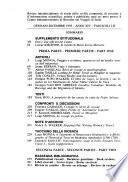
Bollettino del C.I.R.V.I.
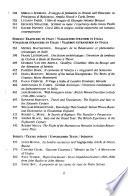
AdI
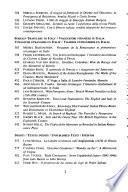
Hodoeporics
Autore: Luigi Monga
Numero di pagine: 743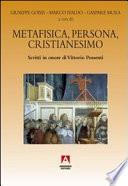
Metafisica, persona, cristianesimo
Autore: Giuseppe Ludovico Goisis , Marco Ivaldo , Gaspare Mura
Numero di pagine: 602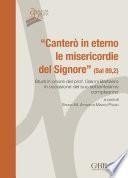
“Canterò in eterno le misericordie del Signore” (Sal 89,2).
Autore: Attard Stefan M. , Pavan Marco
Numero di pagine: 430Il presente volume vuole essere un segno tangibile di gratitudine ed amicizia offerto da colleghi, amici e studenti al prof. Gianni Barbiero, ordinario di Antico Testamento al Pontificio Istituto Biblico di Roma, in occasione del suo settantesimo compleanno. Questa raccolta riflette, nella varietà dei contributi che la compongono, l'ampiezza sia dell’ambito di interesse del prof. Barbiero – i cui lavori spaziano lungo tutto l’Antico Testamento – sia delle relazioni di reciproca stima ed amicizia intessuti negli anni della sua attività di ricerca e di insegnamento. I ventiquattro studi qui raccolti coprono virtualmente tutto il canone delle scritture ebraiche: dal Pentateuco (Esodo e Deuteronomio), ai Profeti (Isaia in particolare) e agli Scritti, sezione più rappresentata (com'era da attendersi), con una particolare prevalenza di contributi (dodici) dedicati ai Salmi e al Cantico dei Cantici, i due libri ai quali il prof. Barbiero ha consacrato la maggior parte della sua attività di ricerca, offrendo un contributo originale e penetrante alla loro comprensione. Hanno contribuito: S.K. Ahn; J.-M. Auwers; E. Bons; P. Bovati; G. Braulik; N. Calduch-Benages; I. Cardellini;...
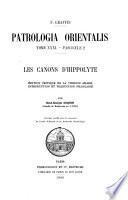
Patrologia Orientalis
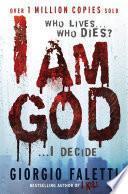
I Am God
Autore: Giorgio Faletti
Numero di pagine: 496A serial killer holds New York in his grip. He does not choose his victims. Nor does he watch them die. But then there are too many of them for that. The explosion of a twenty-two storey building, followed by the casual discovery of a letter, lead the police to face up to a dreadful reality: some of New York's buildings were mined at the time of their construction. But which ones? And how many? A young female detective hiding her personal demons behind a tough appearance, and a former press photographer with a past he'd rather forget, and for which he still seeks forgiveness, are the only hope of stopping this psychopath. A man who does not even claim responsibility for his actions. A man who believes himself to be God. Praise for the Giorgio Faletti: 'In my neck of the woods, people like Faletti are called larger than life, living legends' - Jeffery Deaver. 'Publishing sensation' Financial Times. I Kill is one of those bestsellers that proceeds at a cracking pace and presses all the right buttons with clinical efficiency. Giorgio Faletti's thriller is set in Monte Carlo, home to so many obnoxious millionaires and their trophy girlfriends that what the city really needs is a...
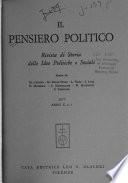
Il Pensiero politico
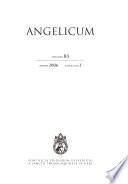
Angelicum
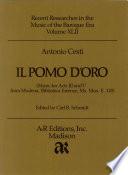
Il pomo d'oro
Autore: Antonio Cesti , Francesco Sbarra
Numero di pagine: 80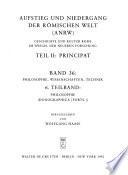
Aufstieg und Niedergang der römischen Welt: Principat. v
Autore: Hildegard Temporini , Wolfgang Haase
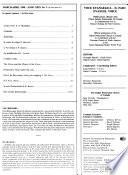
Evangel voice
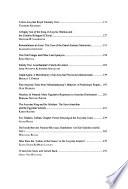
Of God(s), Trees, Kings, and Scholars
Autore: Mikko Luukko , Saana Svärd , Raija Mattila
Numero di pagine: 503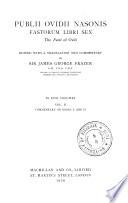
Fastorum libri sex
Autore: Ovid
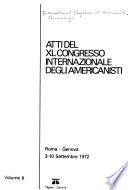
Atti del XL Congresso internazionale degli americanisti, Roma-Genova, 3-10 settembre 1972
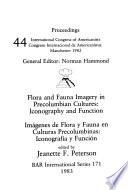
Actes
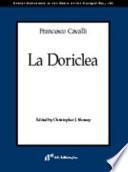
La Doriclea
Autore: Pier Francesco Cavalli
Numero di pagine: 240lxxvi + 240 pp.
Vedi maggiori dettagli